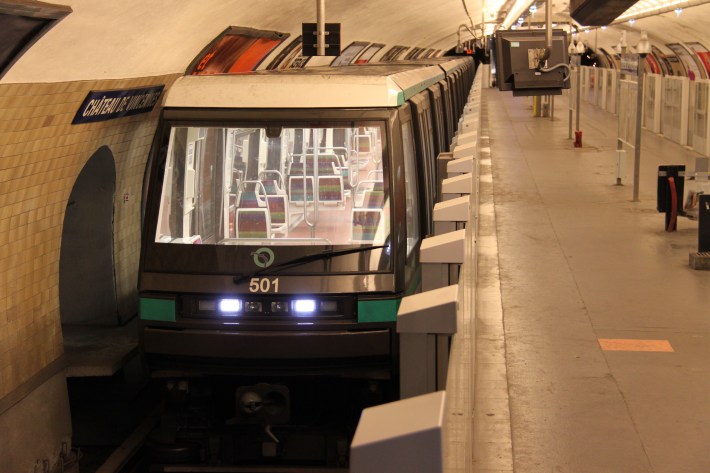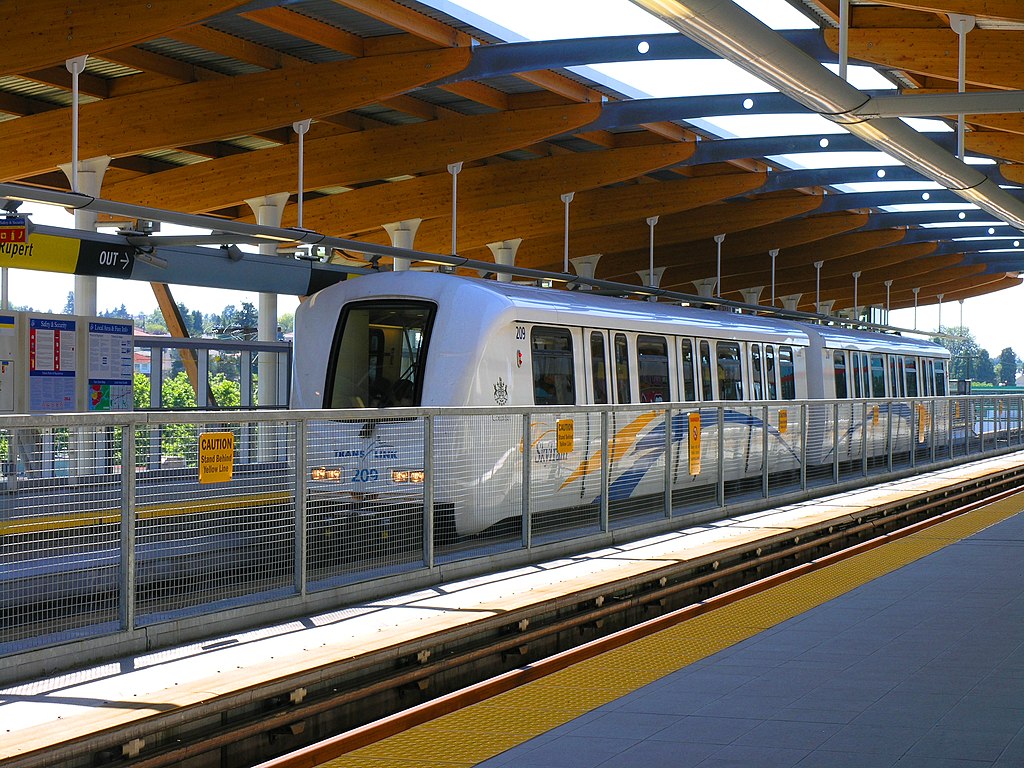Two seemingly distinct stories this week speak volumes about the customer-last attitude of Bay Area transit agencies. The first, from Trains Magazine, is "Siemens demonstrates driverless trains and streetcars in Germany:"
HAMBURG, Germany — Rail equipment firm Siemens has launched two types of driverless train operations in Germany, introducing a commuter train in the northern port city of Hamburg and a fully autonomous streetcar in Potsdam, just west of Berlin. The company is working toward making both technologies commercially available within a few years, as is major European rival Alstom.
So while news sources in the Bay Area are filled with stories about the trials and tribulations of automated cars, the Europeans are working on automated commuter trains and light rail. Of course, as the Trains story points out "fully automated subway trains are fairly common in both Europe and Asia." They're also the norm in Vancouver, British Columbia, which has been running its fully automated Skytrain system for decades.
And what's the other story?
Muni is planning to, once again, reduce service, this time because of anticipated worker shortages when its vaccine mandate goes into effect next week. From the SFMTA:
Starting November 1, we are planning to temporarily suspend the 1 California Short, 14R Mission Rapid Short (weekdays only), 30 Stockton Short, and 49 Van Ness Short (on weekends only). These changes are intended to reduce impacts to service systemwide, but customers may experience additional crowding and longer wait times on various bus routes as a result. These changes may impact also NextMuni predictions.
BART may find itself in the same predicament on Dec. 13, when their own mandate goes into effect.
Think of the irony. BART operators don't actually drive the trains. The system is fully automated. They're simply there as a backup and, ostensibly, for safety. Same goes for Muni trains once they're inside the subway tunnels and isolated from automobile traffic.
Streetsblog can find no hard evidence that BART and Muni's operator-as-back-up systems are any safer than they would be if they were fully automated. Just last month a woman was dragged to her death after getting stuck in a BART door because the operator failed to stop the train. Theses incidents are mercifully rare, but unfortunately having an operator on board doesn't prevent them. And it's not as if humans aren't monitoring for safety in automated train systems; they do it by video from operations centers instead of riding the trains.
A few years ago Streetsblog interviewed the operator of Paris's automated lines, to go over the many advantages. The big one is obvious: if not for the cost of paying additional "operators," the Muni subway and BART could be running trains much more frequently. Instead of BART running 10-car trains every 20 minutes at night, they could run two-car trains every four or five minutes. Obviously, that would be a much better, more enticing service that would increase ridership and revenue.

BART and Muni make all sorts of excuses for why they can't do this. But, frankly, it comes down to inertia and agreements with the unions. And it comes down to general managers, operators, and directors who think they work for each other instead of the riders.
And on Monday Muni riders will be stranded, once again, due to operator shortages, when all those operators going back and forth in the subway tunnels could be driving buses and surface LRT instead. I'm pretty sure BART operators could be driving Muni buses too, where they'd be way more useful to the traveling public.
Some day soon Germany, France, and other countries will be running frequent, punctual, and reliable automated trams and surface trains. And more and more countries will have automated their metro systems. But in the Bay Area, supposed tech-capitol of the world, transit will continue to be infrequent and unreliable because we waste precious labor doing a job that was rendered obsolete decades ago by computers. And if an operator gets sick or refuses to follow a vaccine mandate or some other rule and has to be suspended, the train just doesn't come.






